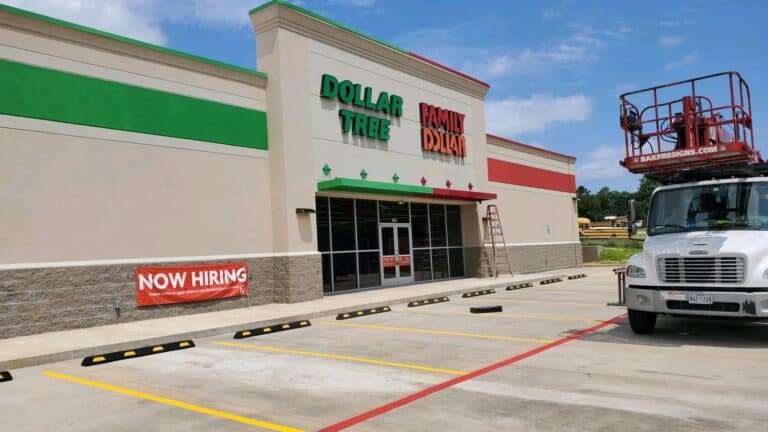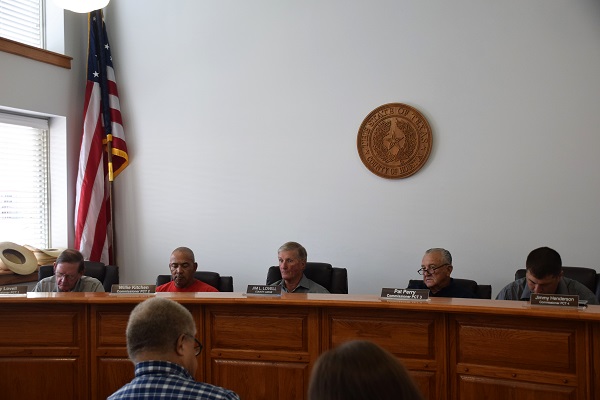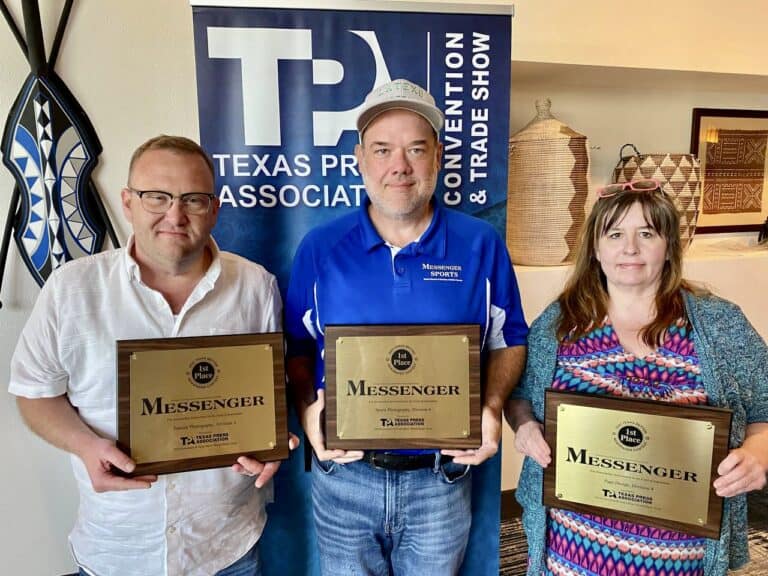January Human Traffic Awareness Month

Special to The Messenger
EAST TEXAS – In January, the Family Crisis Center of East Texas is shining a light on a serious problem during Human Trafficking Awareness Month. They want people to know that human trafficking isn’t just in big cities—it’s happening in rural areas too, like East Texas.
Whitney Burran, the executive director of the Family Crisis Center, says, “Human trafficking is not just in large cities; it’s a widespread issue that affects rural communities, including our own here in East Texas. Recognizing the unique challenges faced by survivors in these areas is crucial for effective intervention and support.”
Human trafficking means forcing, tricking, or controlling someone for money through things like labor, sex, or exploiting minors.
“Traffickers lure and defraud people into forced labor and sex by manipulating and exploiting their vulnerabilities. They prey on people who are hoping for a better life, lack employment opportunities, have an unstable home life, or can have a history of sexual, physical or substance abuse,” said Burran.
Rural areas face challenges in spotting and stopping human trafficking compared to cities. In rural communities, survivors face isolation, limited employment opportunities, and a lack of ability to access social services. It can be a challenge to drive long distances in order to access resources. The close-knit nature of small towns can further stigmatize victims, making it difficult for them to come forward.
People vulnerable to human trafficking in rural areas include women, girls, runaways, and those on temporary visas. Traffickers use various methods, like bars, fake job ads, family connections, social media, truck stops, and illegal sex venues.
“There’s widespread misunderstanding about what ‘trafficking’ actually is. It occurs when one person sells another for a profit. Many people think it involves movement across borders and believe it’s something that only happens in bigger cities, but it’s happening in your neighbor’s home,” said Burran.
“Moreover, it’s crucial to recognize the interconnection of human trafficking, domestic violence, and sexual assault, as abusers and traffickers often employ similar tactics to exert power and control over victims,” she added.
To fight rural human trafficking and all kinds of abuse, awareness is crucial. Warning signs of human trafficking may include unusual physical injuries, fearful or avoidant behavior, inability to communicate freely, lack of personal belongings, signs of malnourishment or dehydration, inconsistent stories, excessive working hours, restricted movement, and the presence of an overbearing individual, among others.
“It is important that educators, medical professionals, law enforcement, and the entire community remain vigilant and proactive in monitoring for indicators of abuse and human trafficking. Reporting suspicious activity promptly to authorities is vital and may help save a life.”
The Family Crisis Center invites the public to “Unseen Suffering: A Human Trafficking Simulation” on January 31 at 5:30 p.m. in the Twilight Ballroom at Stephen F. Austin State University. This immersive learning experience offers attendees a firsthand understanding of the challenges faced by trafficking survivors, aiming to foster empathy and inspire collective action against human trafficking.
As Human Trafficking Awareness Month unfolds, the Family Crisis Center of East Texas urges the community to stay informed, share knowledge, and actively contribute to the prevention of human trafficking in all its forms.
The Family Crisis Center of East Texas (FCCET) is a non-profit organization that empowers survivors of domestic violence and sexual assault by providing crisis intervention and advocacy services. The FCCET also engages the community through education to build awareness and prevent domestic violence and sexual assault.





